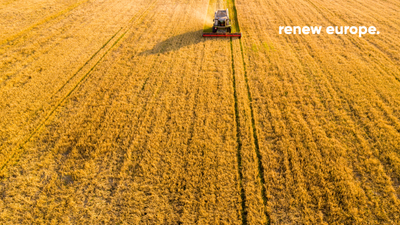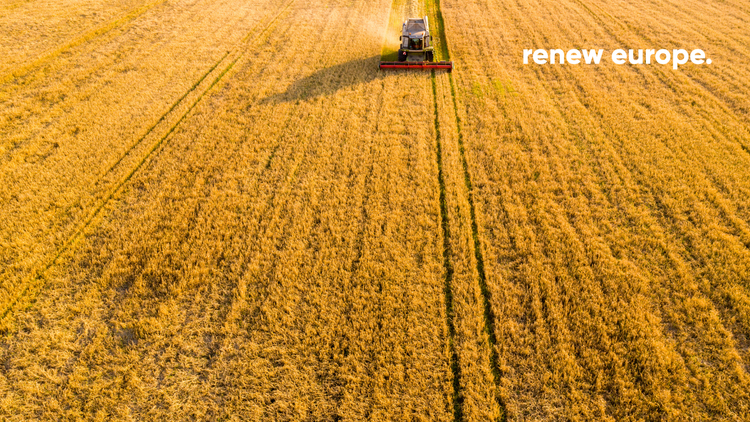
Ukrainian wheat: for Renew Europe, solidarity with Ukraine must go hand in hand with protecting EU farmers

In solidarity with Ukraine, whose economy is suffering drastically from Putin's war, the European Union, with the full support of Renew Europe, has decided to provide alternative routes for the export of Ukrainian cereals and to liberalise commercial exchanges, especially agricultural ones. The implementation of these measures has meant that part of the cereals intended for transit is marketed in neighbouring countries, strongly affecting the price of cereals and the incomes of farmers from those Member States. Last month, the Commission proposed to mobilise the emergency reserve to partially compensate the loss of income of the farmers concerned. Renew Europe considers this aid insufficient and asks the Commission to reassess it. However, without notice, Poland, Slovakia and Hungary have initiated a ban against Ukrainian cereals and other agricultural products. Renew Europe considers that this unilateral decision is unacceptable in view of the European commitment to Ukraine and only adds to Russian propaganda on so-called EU divisions.
This dispute requires European solutions as long as trade is an exclusive European competence and that this type of issue cannot be solved only with national decisions. Renew Europe therefore proposes a series of pragmatic and constructive measures that can maintain agricultural trade with Ukraine, while protecting EU farmers.
- Cereals only transiting EU territory with final destination non-EU markets: Introduction of import/export certificates for transport of Ukrainian cereals, with mandatory control, transiting EU territory with the clear specification TRANSIT. These transports should not have the possibility of being unloaded on EU territory.
- Cereals with final destination on the EU market: Within the internal market, the cereals should be destined only for the Member States that need them, without affecting the local markets of bordering Member States. The grains should be destined for final use, without the possibility of being put back on the market in the EU.
- Phytosanitary certificates: The introduction of phytosanitary certificates should be part of transport certificates in order to prove that the Ukrainian cereals comply with EU norms, to avoid speculation regarding the quality of Ukrainian grain.
- Control: The European Commission and the Member States will have to ensure that these rules are applied by introducing reinforced temporary controls, and the European executive will have to propose short and medium-term measures beneficial to both Ukrainian farmers and for EU farmers.
Renew Europe group will request on this issue an item with a statement of the Commission and a debate on the May plenary agenda.
Dacian CIOLOS (REPER, Romania), former European Commissioner for Agriculture and chair of Renew Europe’s Food Security Task Force, said:
”Farmers in the Member States neighbouring Ukraine are right to be concerned. The impact of Ukrainian grain on their agricultural markets is serious. However, banning Ukrainian imports is not the right answer. We should not enable those that are using this against the EU or against our efforts to support Ukraine. What we need is European solutions that are beneficial to both European and Ukrainian farmers, so that Ukrainian grain exports can continue without affecting the EU market. Together with colleagues in Renew Europe we are proposing a set of concrete ways to address these problems. The European Commission must assume leadership and work with Ukraine and the affected Member States to find and implement these solutions.”